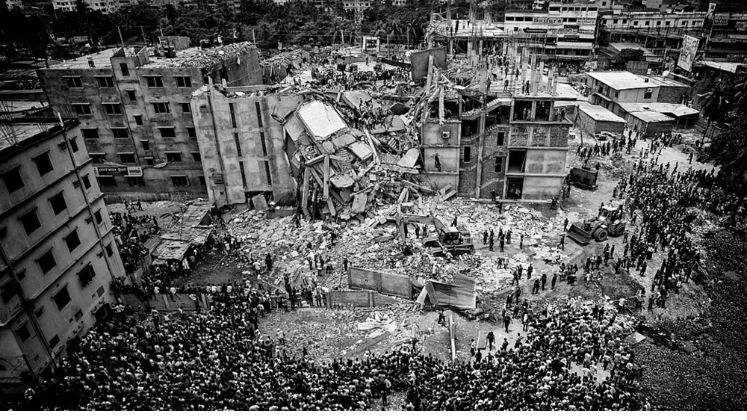
Twelve years after the deadly Rana Plaza collapse in Savar, Bangladesh, justice remains unserved for the victims and their families. The incident on 24th April 2013, claimed 1,136 lives and injured over 2,000 workers, yet the legal proceedings continue to face delays.
Several cases linked to the tragedy are still unresolved. In the murder case filed by the police’s Criminal Investigation Department (CID), 41 individuals, including factory owners, the building’s owner, and government officials, were accused of planned murder. Charges were framed in July 2016, and out of 594 witnesses, only 94 have given testimonies so far. Two accused have since died and been acquitted, leaving 39 defendants remaining.
In a separate case concerning construction defects and the use of substandard materials, 18 individuals, including the building owner, were indicted in June 2016. However, proceedings have been halted since November 2021 due to a stay order issued by the High Court, which has yet to be lifted, suspending witness testimonies.
Another case filed by the Anti-Corruption Commission (ACC) on charges of corruption in the construction of Rana Plaza involves 10 accused, including Sohel Rana. To date, only 14 witnesses have testified in this case since charges were framed in May 2017.
Despite a court order instructing that the murder trial be resolved within six months of January 2023, the case remains slow-moving. The delay has caused frustration among victims’ families and labor organizations, who demand swift justice. The victims continue to suffer long-term physical and emotional trauma, with some, like injured survivor Shiuli Khanom, requiring ongoing medical treatment abroad.
There has been no compensation announced or paid to the victims and their families, and justice continues to be out of reach, marking a grim milestone in the pursuit of accountability for one of Bangladesh’s worst industrial tragedies.






